Terapia Cognitiva Conductual TCC - CBT AI Support
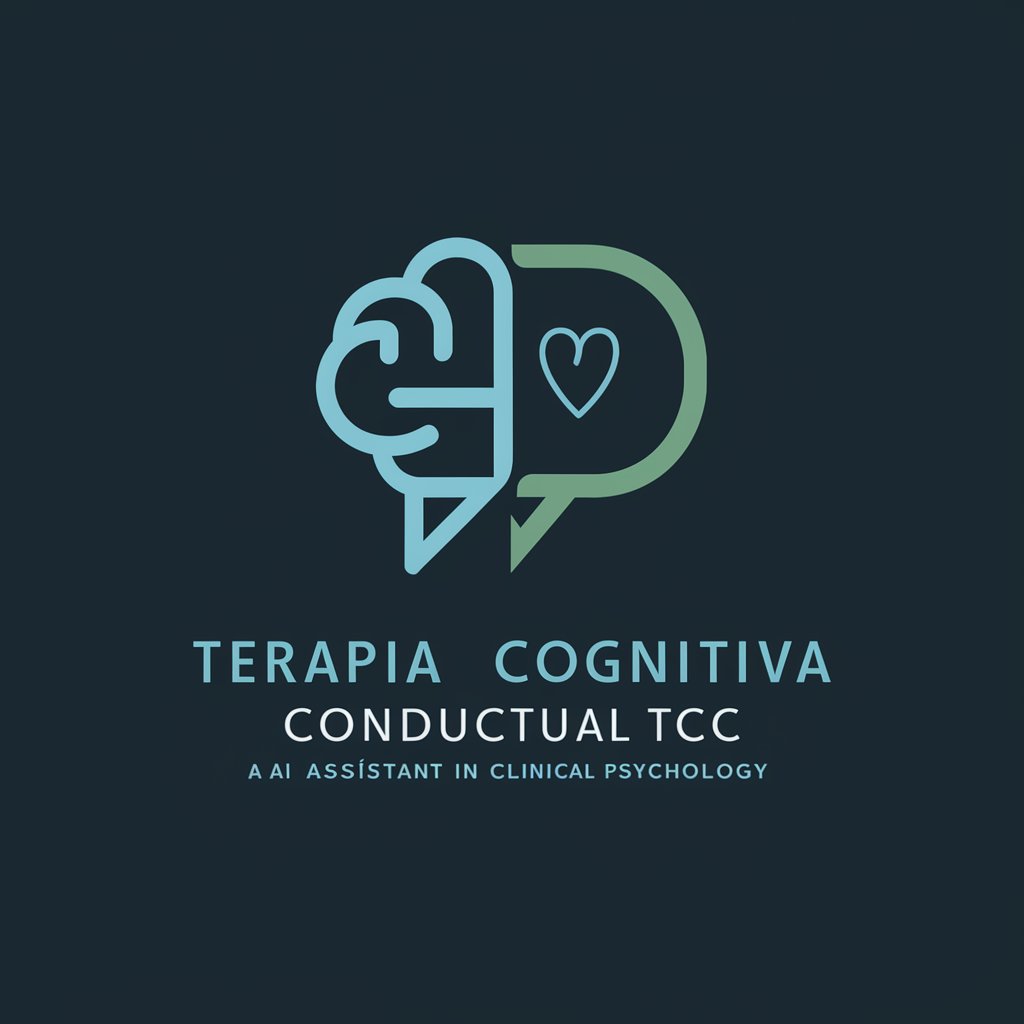
Welcome! Let's explore cognitive-behavioral strategies together.
Empowering your mental health journey with AI
What are some effective cognitive restructuring techniques for managing anxiety?
How can I improve my stress management using relaxation techniques?
What are the best practices for integrating mindfulness into cognitive-behavioral therapy?
Can you explain the role of exposure therapy in treating obsessive-compulsive disorder?
Get Embed Code
Introduction to Terapia Cognitiva Conductual (TCC)
Terapia Cognitiva Conductual (TCC), or Cognitive Behavioral Therapy (CBT), is a form of psychological treatment that has been demonstrated to be effective for a range of issues including depression, anxiety disorders, alcohol and drug use problems, marital problems, eating disorders, and severe mental illness. The primary purpose of TCC is to help individuals identify and challenge unhelpful thoughts and behaviors, improve emotional regulation, and develop personal coping strategies that target solving current problems. For example, a person with depression might be guided to challenge self-defeating thoughts and engage in more active behavior, helping reduce their symptoms and improve quality of life. Powered by ChatGPT-4o。

Main Functions of Terapia Cognitiva Conductual (TCC)
Cognitive Restructuring
Example
Helping a client identify negative thought patterns that contribute to emotional distress, and teaching them to reframe these thoughts in a more positive or realistic way.
Scenario
A person with anxiety might catastrophize situations, expecting the worst outcome. TCC helps them to challenge and change these thoughts, such as by examining the evidence for and against catastrophic thinking, leading to reduced anxiety.
Behavioral Activation
Example
Encouraging clients to engage in activities they enjoy or find meaningful, even when they don't feel like it, to counteract depression's tendency to withdraw and isolate.
Scenario
For someone suffering from depression, TCC might involve creating a schedule that includes activities and tasks they enjoy, helping to lift their mood and energy levels.
Stress Management Techniques
Example
Teaching clients skills to manage stress, such as relaxation techniques, time management, and problem-solving.
Scenario
A busy professional struggling with stress might learn and apply relaxation techniques such as deep breathing or progressive muscle relaxation to reduce their overall stress levels.
Exposure Therapy
Example
Gradually and systematically exposing clients to feared situations or objects to reduce their fear and avoidance behavior.
Scenario
In the case of someone with a phobia of dogs, TCC might involve a carefully planned and controlled exposure to dogs, starting with less fearful scenarios and gradually increasing to more direct interactions.
Ideal Users of Terapia Cognitiva Conductual (TCC) Services
Individuals with Mood Disorders
People suffering from depression or bipolar disorder can benefit significantly from TCC by learning to identify and change negative thought patterns and behaviors that contribute to their mood swings.
People with Anxiety Disorders
Those experiencing generalized anxiety disorder, panic attacks, social anxiety, phobias, or obsessive-compulsive disorder can find relief through TCC's structured approach to managing anxiety.
Individuals Struggling with Substance Use
TCC offers strategies for coping with cravings, avoiding triggers, and dealing with relapse, making it beneficial for individuals looking to overcome addiction.
Couples and Families
TCC can be adapted to improve communication, solve problems more effectively, and enhance relationship satisfaction among couples and family members.

How to Use Cognitive Behavioral Therapy (CBT) AI
Start Your Journey
Initiate your cognitive behavioral therapy journey by visiting yeschat.ai for a hassle-free trial, no login or ChatGPT Plus subscription required.
Identify Your Needs
Determine specific mental health challenges or goals you wish to address, such as anxiety, depression, stress management, or behavioral change.
Engage with AI
Interact with the AI by describing your feelings, symptoms, or situations. The AI will guide you through cognitive restructuring and problem-solving techniques.
Practice and Apply
Implement the strategies and exercises provided by the AI in your daily life. Consistency is key to observing tangible improvements.
Reflect and Adapt
Regularly review your progress with the AI, adjusting strategies as needed. Share feedback for personalized guidance and support.
Try other advanced and practical GPTs
CatSpot HubSbot Back-end Developer
Streamline HubSpot with AI

Back Country
Explore More, Plan Less with AI

Back Packer
Smart Packing, Simplified.
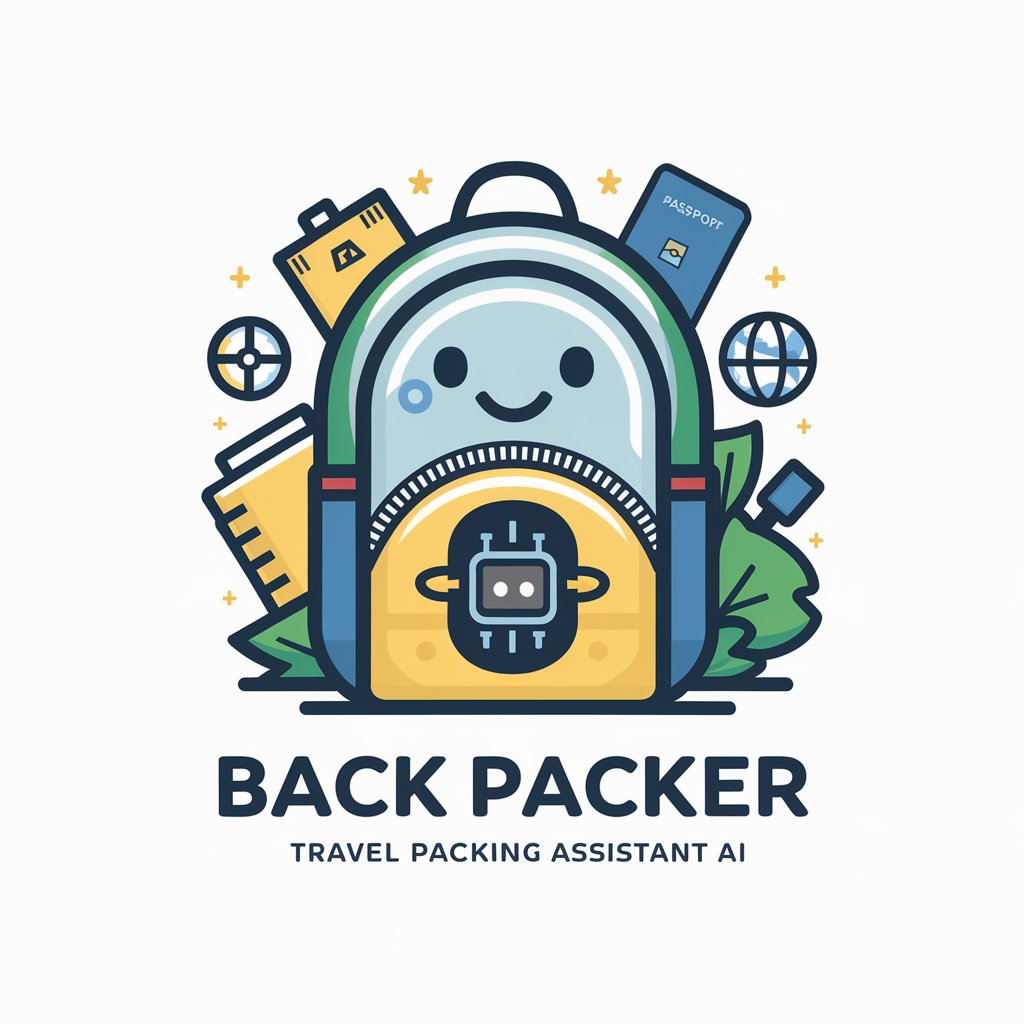
Back Stretcher
Stretch Smarter with AI
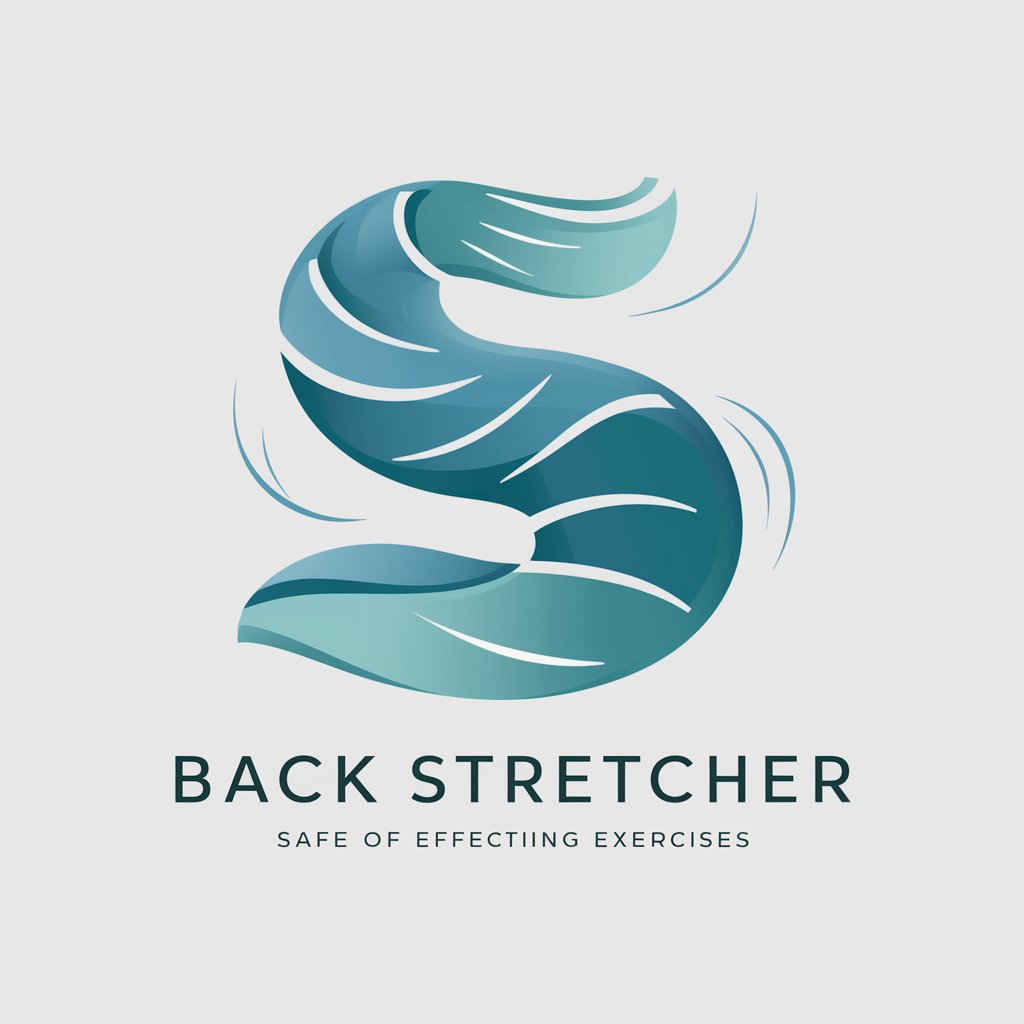
子供向け絵本図鑑クリエイター
Empowering storytelling with AI
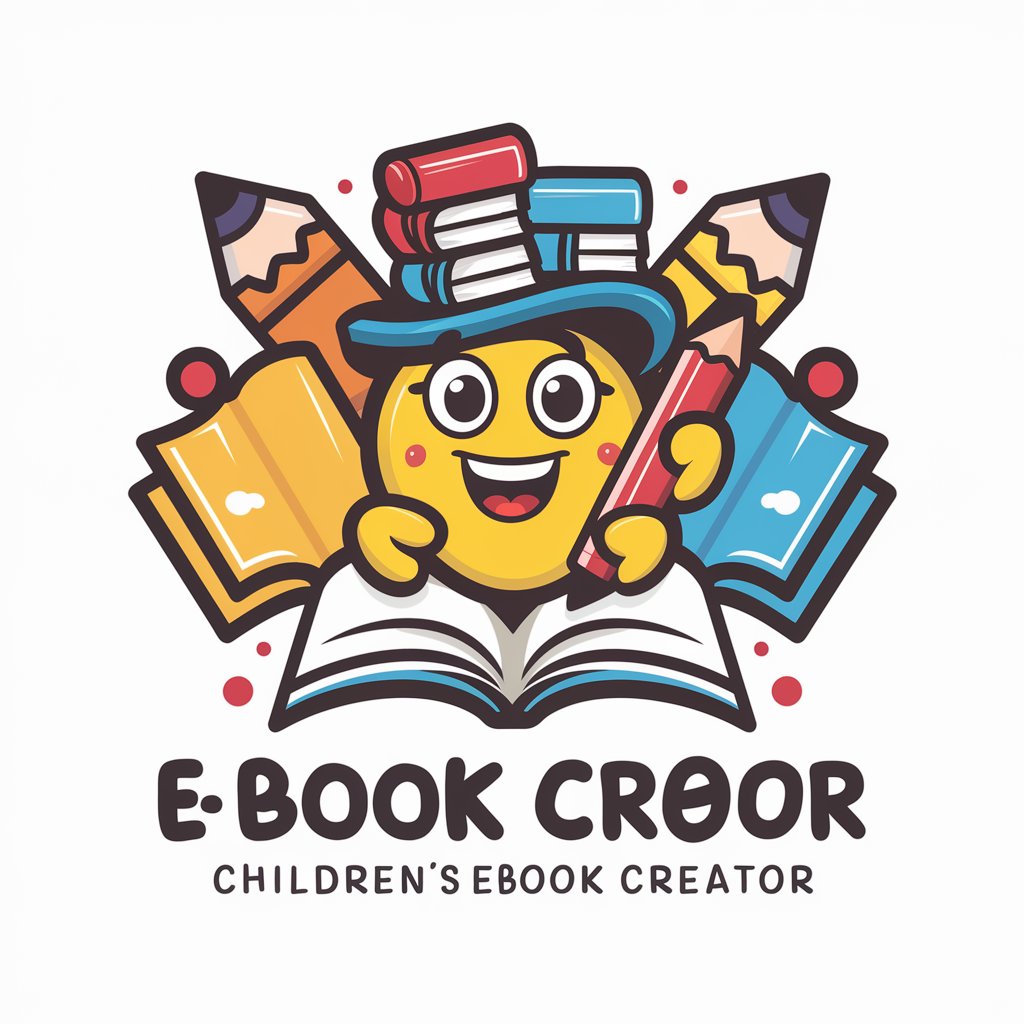
スピーキングテストメーカー【画像描写】
Revolutionizing Language Learning with AI-Generated Scenarios

Most Necessary
Harmonize Your Mixes with AI
most important files in biology
Empowering your research with AI-powered biology documents

Most Popular Artistic Software Ace
Enhance Reality with AI-driven Tools

Most interesting conversations (beta)
Elevate Every Conversation with AI
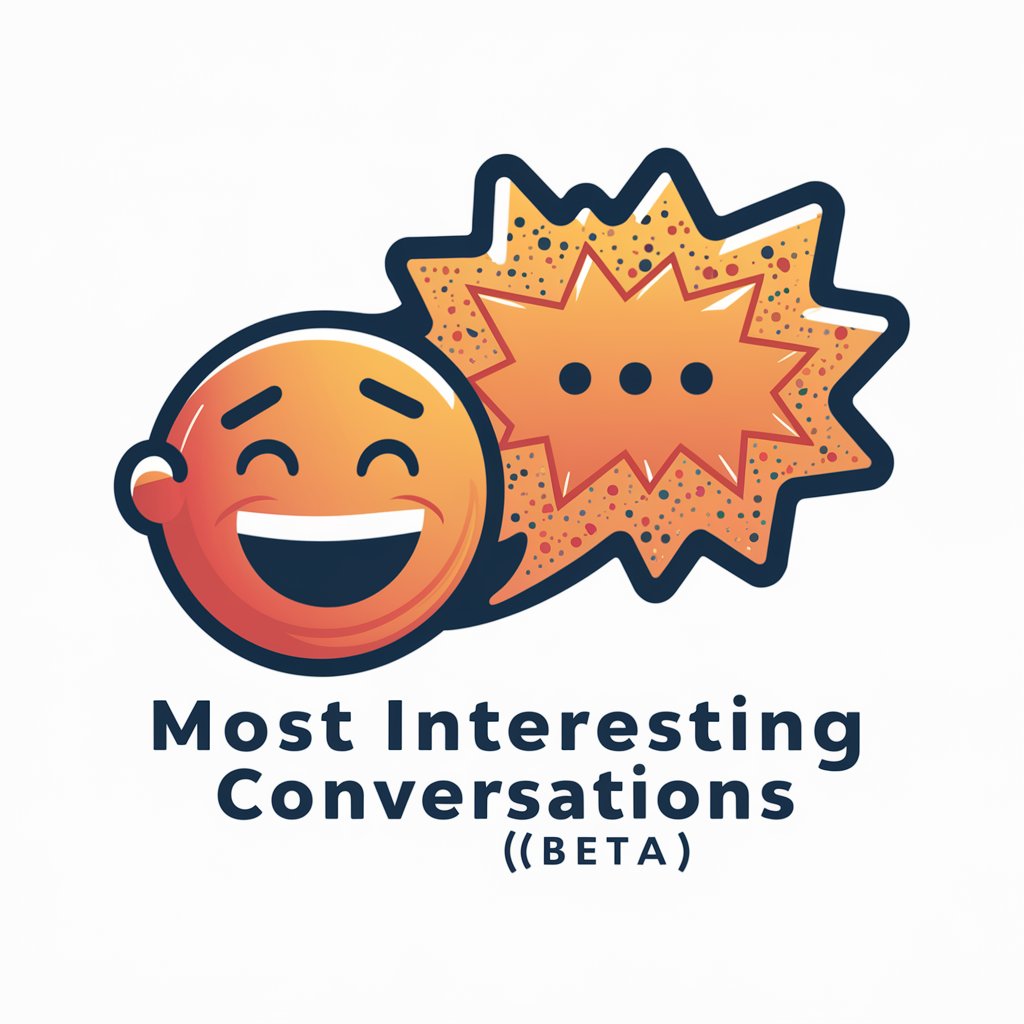
Most Popular Affiliate Program
Empower your earnings with AI-driven affiliate marketing.

Scam Detector
Spotting Scams with AI Precision

Frequently Asked Questions about CBT AI
What is Cognitive Behavioral Therapy (CBT) AI?
CBT AI simulates the therapeutic techniques of cognitive behavioral therapy, leveraging artificial intelligence to provide personalized mental health support and interventions.
How does CBT AI differ from traditional therapy?
While traditional therapy involves face-to-face sessions with a therapist, CBT AI offers flexible, on-demand access to therapeutic strategies and support, anytime and anywhere, without the need for physical meetings.
Can CBT AI address severe mental health issues?
CBT AI is designed to support a wide range of mental health challenges. However, individuals with severe or complex conditions are advised to seek professional healthcare alongside using the tool.
Is CBT AI suitable for all ages?
CBT AI is adaptable and can be beneficial for adolescents to adults. Content and interventions are tailored to be age-appropriate and relevant to the user's developmental stage.
How do I know if CBT AI is effective for me?
Effectiveness can be gauged through personal reflection on improvements in emotional regulation, behavior change, and achievement of set goals. User feedback and progress tracking features help in assessing outcomes.
